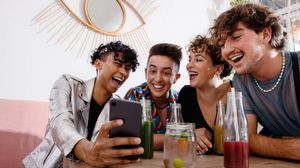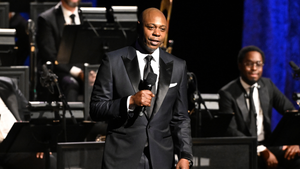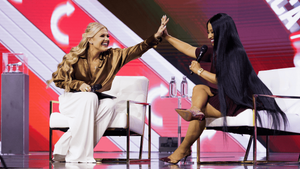CONTACTAbout UsCAREER OPPORTUNITIESADVERTISE WITH USPRIVACY POLICYPRIVACY PREFERENCESTERMS OF USELEGAL NOTICE
© 2025 Equal Entertainment LLC.
All Rights reserved
All Rights reserved
By continuing to use our site, you agree to our Privacy Policy and Terms of Use.
We need your help
Your support makes The Advocate's original LGBTQ+ reporting possible. Become a member today to help us continue this work.
Your support makes The Advocate's original LGBTQ+ reporting possible. Become a member today to help us continue this work.
Last year I diagnosed my youngest patient with HIV. He was 23 years old. Ironically, he worked as an HIV health coordinator. His story is simple: he met the man of his dreams, fell in love and began a monogamous relationship. After six months of dating they stopped using condoms. One day, while he was in his boyfriend's apartment showering, he discovered several bottles of antiretrovirals in the medicine cabinet. That day he came to see me. After performing a rapid HIV test, we discovered that he was HIV positive. His partner had neglected to tell him about his status. Once the initial shock wore off, we had a long discussion and eventually decided that he would benefit from attending a support group with other men his own age. I've always felt support groups add a valuable dimension to patient's care. Listening and speaking to other individuals can be more helpful in certain situations than a visit to the doctor. Through this experience, I learned that support networks are as varied as the gay men who attend them. If you're thinking about joining one, get some advice from the amazing men and women who organize them at The Center and Callen Lorde. HIV is not just a medical condition Learning to cope with being positive is as important as taking your meds. I thoroughly support these networks and advocate them especially for those who are newly diagnosed.
From our Sponsors
Most Popular
Bizarre Epstein files reference to Trump, Putin, and oral sex with ‘Bubba’ draws scrutiny in Congress
November 14 2025 4:08 PM
True
Jeffrey Epstein’s brother says the ‘Bubba’ mentioned in Trump oral sex email is not Bill Clinton
November 16 2025 9:15 AM
True
Watch Now: Pride Today
Latest Stories
All about the infamous CECOT prison — on which CBS's Bari Weiss pulled a story
December 22 2025 7:27 PM
Chest binder vendors respond to 'absurd' FDA warning letter: 'Clearly discrimination'
December 22 2025 3:16 PM
Gay NYC Council member Erik Bottcher drops U.S. House bid, will run for state Senate instead
December 22 2025 2:03 PM
Massachusetts removes rule requiring foster parents to support LGBTQ+ youth
December 22 2025 12:55 PM
Dave Chappelle defends Saudia Arabia set: Trans jokes 'went over very well'
December 22 2025 12:33 PM
Texas judge who refused to officiate same-sex weddings sues to overturn marriage equality
December 22 2025 11:41 AM
At 50, passing isn’t the goal. Living is
December 22 2025 6:00 AM
A heart filled with trans hate is how Marjorie Taylor Greene is choosing to be remembered
December 20 2025 10:00 AM
Love 'Heated Rivalry'? Watch these 9 great queer shows next
December 19 2025 5:50 PM



































































Charlie Kirk DID say stoning gay people was the 'perfect law' — and these other heinous quotes